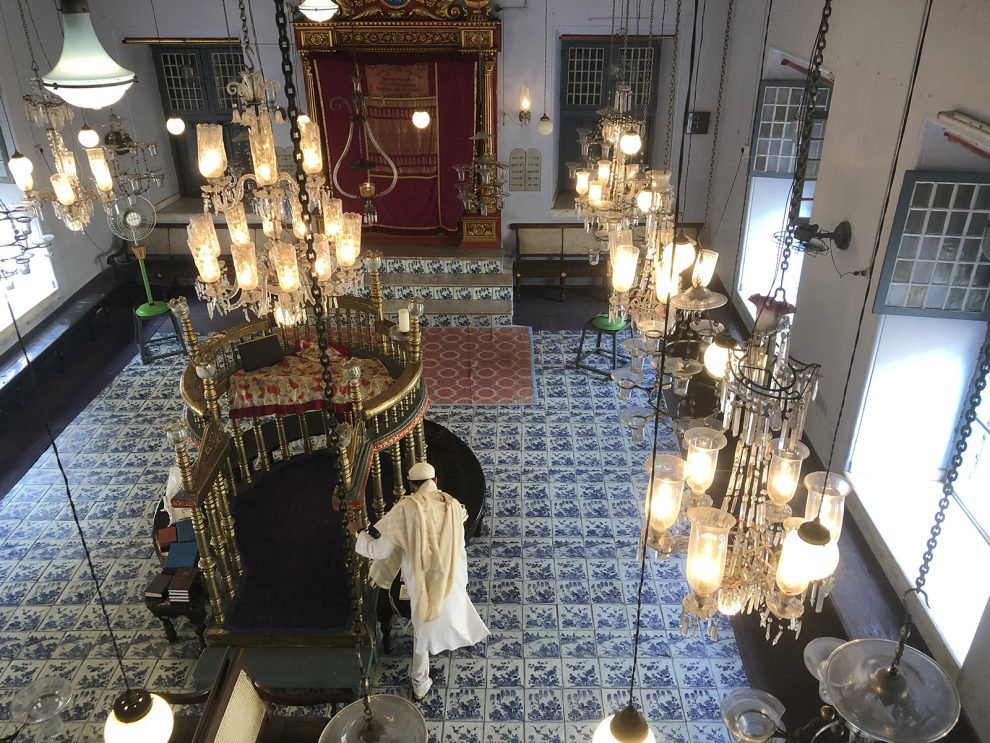Two thousand years ago, the first Jewish residents in this city could feel the Arabian Sea breeze as they left one of Kochi’s two synagogues in the Mattancherry district, or as the 18th-century British coined it, “Jew Town”.
The neighbourhood, where today warehouse workers can be seen bending over mounds of black pepper, ranks alongside Jerusalem as a community with a long history of Jewish life.
But where a community once built schools and homes, kosher restaurants and shops, most of the streets are lined now with Muslim or Hindu souvenir vendors and eateries. One synagogue is now rubble, covered only by a curtain. The other is hidden inside an aquarium store.
A newer synagogue, not yet 500-years-old, is the only one that regularly holds services. The Paradesi Synagogue serves as a major Jewish tourist attraction.
The Jews in this region of Kerala go by different names: Paradesi, Malabari, Baghdadi, Cochin, Indian. But time is quietly claiming this ancient community. Even centuries of disputes between the Jews who arrived in the first century and Spanish and Portuguese Jews who arrived in the 1500s didn’t cause the population to dip. Now, interfaith marriage and migration to Israel may soon end it.
These days, the community attracts mostly tourists from around the world, people eager to shake the hands, walk in the footsteps and pray in the synagogue of the city’s 24 remaining Jews.
Sarah Cohen, 96, sits in her home, which doubles as her embroidery shop, with the Torah in her lap. She mostly dozes, her bespectacled eyes just grazing over the Hebrew words.
“Sarah aunty,” said Thaha Ibrahim, a longtime family friend who cares for Cohen and has become something of an expert on the Jewish community. It’s unclear how aware Cohen is of her surroundings, or if she understood why Ibrahim and a dozen excited Israeli tourists roused her to say hello.
Read the article by Briana Trujillo in Sight Magazine.

